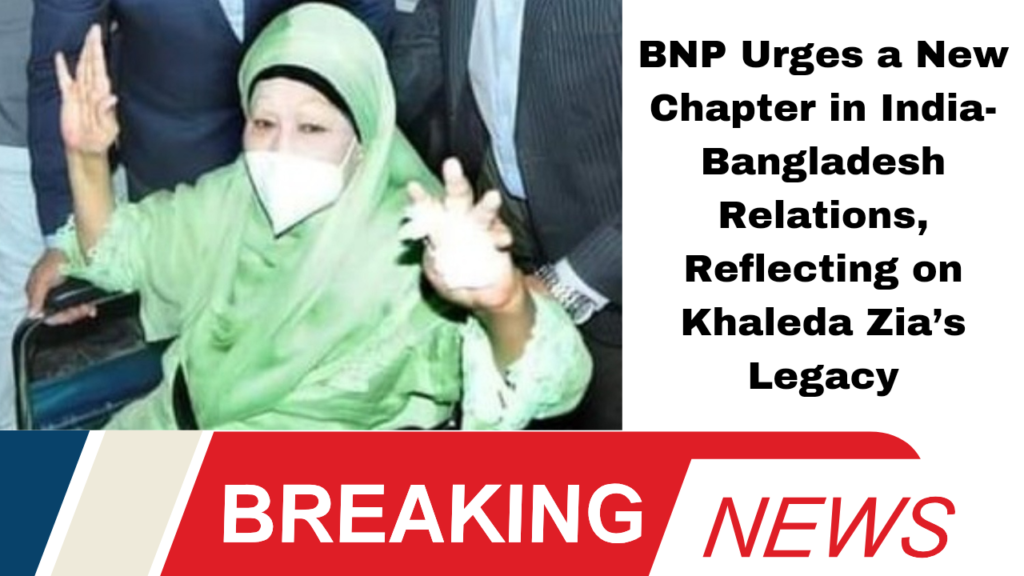Dhaka, August 9, 2024 — Senior figures of Bangladesh’s Bangladesh Nationalist Party (BNP), including Khandaker Mosharraf Hossain and Abdul Awal Mintu, have voiced significant concerns about the current state of India-Bangladesh relations amid the ongoing political upheaval in Bangladesh. The focus has been on recent developments involving former Prime Minister Sheikh Hasina, the interim government led by Mohammad Yunus, and the legacy of former Prime Minister Khaleda Zia.
Political Turmoil and Indian Asylums
Following a major coup and widespread anti-government protests in Bangladesh, Nobel Prize laureate Mohammad Yunus has been appointed as the head of the interim government. This upheaval led to Sheikh Hasina’s resignation and her subsequent departure to India, where she has been granted asylum. BNP leaders have criticized this move, arguing that it has negatively affected the bilateral relationship between India and Bangladesh.
Khandaker Mosharraf Hossain, a senior BNP leader and former minister during Khaleda Zia’s government, addressed the situation by stating, “India is very important for Bangladesh, and this is the right time to start a new chapter in our bilateral relations.” He welcomed Prime Minister Narendra Modi’s congratulatory message to the new interim government but called for India to reconsider its support for the Awami League and Sheikh Hasina.
Impact on Bilateral Relations
Hossain and Mintu have raised concerns that India’s decision to grant asylum to Hasina has led to negative reactions among the Bangladeshi populace. Abdul Awal Mintu highlighted this, saying, “It would have been better if Sheikh Hasina had not fled to India, as we want to maintain good relations with our neighbor.” He emphasized that the people of Bangladesh consider India a friend and hope for continued positive relations despite the current tensions.
Hossain further pointed out that during Khaleda Zia’s tenure, relations between India and Bangladesh were notably positive. He expressed hope that the Indian government would refrain from continuing its support for what he described as a “corrupt and dictatorial regime” like the Awami League. Hossain is optimistic that the interim government under Yunus will restore democratic rights and bring stability back to Bangladesh.
Diplomatic Challenges and Future Prospects
The BNP leaders also emphasized that India’s support for the Awami League has been a contentious issue, influencing the current diplomatic landscape. Mintu suggested that while the current situation might have a short-term impact on bilateral relations, it is crucial for both countries to engage in constructive dialogue to resolve their differences and strengthen their ties.
Both Hossain and Mintu dismissed the ‘India Out’ campaign as isolated and not representative of the broader Bangladeshi sentiment or BNP’s position. They stressed the importance of diplomatic engagement between the interim government and India to address and resolve ongoing issues.
As the political situation in Bangladesh continues to evolve, the BNP leaders are advocating for a swift return to democratic governance. They emphasize the need for timely elections to establish a stable and democratic government. The BNP leaders also expressed hope that the Indian government will support the interim regime and facilitate a constructive resolution to the current crisis.
The ongoing diplomatic and political developments present both challenges and opportunities for India and Bangladesh as they navigate their complex relationship. The actions taken in the coming weeks will be crucial in shaping the future of bilateral relations and ensuring stability in the region.
–











More Stories
Bill Maher Critiques Biden’s “Garbage” Comment A Major Gaffe for Democrats
Texas Senate Showdown Cruz vs Allred in a Tight Race
Harris and Walz Rally in Ann Arbor Energizing Young Voters Ahead of Election